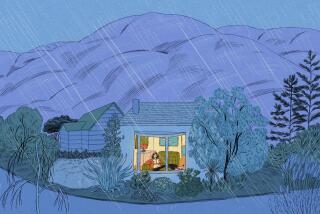Book Review: ‘The Summer Without Men’ by Siri Hustvedt
- Share via
“The Summer Without Men” is the story of a bad two-month period in one woman’s life, brought on by her husband’s affair. It is also the story of a woman who pulls herself from the brink of wit’s end, with the help of other women, young and old and in-between, and several long-dead including Jane Austen.
When Mia Fredrickson’s husband requests a “pause” in their 30-year marriage, her first response is a nervous breakdown.
After the breakdown, Mia, a 55-year-old-poet who teaches at Columbia University, decides to spend the summer in the town where she grew up in Minnesota. She rents a house not far from the assisted living facility where her aging and elegant mother lives and takes a summer job teaching poetry to a coven of seven girls, all 13. She meets her neighbors, a 3-year-old girl/wild child wearing a Harpo wig named Flora, her young mother, Lola, and the baby, Simon. She gets to know her mother’s quirky collection of elderly widows and responds to her teenage daughter’s frequent worried emails.
“The Summer Without Men” touches on just about every stage of a woman’s life: toddler, adolescent, mother, empty-nester, widow, spinster. The novel is teeming with emotion, with voices. Mia struggles to placate, protect, calm her own nerves and the nerves of those around her, but inside her head is raw turmoil, and Siri Hustvedt has never in any of her previous books (including a book about her own battle with uncontrollable shaking and a lifetime of nerves) shied away from turmoil.
Given the author’s fascination with instability and that her main character is living through a particularly unstable period in her life, the novel is bound to feel raw and rickety. Hustvedt’s previous novel, “The Sorrows of an American,” had a sturdy plot and a strong central voice. “The Summer Without Men” does not. It is a novel about a period of great change in a woman’s life, before she finds a new footing and new roles to play. It is an intelligent and empathetic novel; what is sacrificed is that old lifeline — the narrative thread.
Salter Reynolds is a Los Angeles writer
More to Read
Sign up for our Book Club newsletter
Get the latest news, events and more from the Los Angeles Times Book Club, and help us get L.A. reading and talking.
You may occasionally receive promotional content from the Los Angeles Times.










